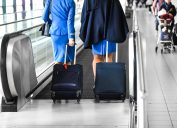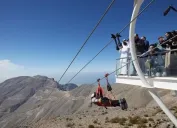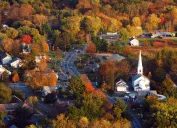How Government Shutdown Could Wreak Havoc on Flights and National Parks
It could end up having serious consequences for your travel plans.
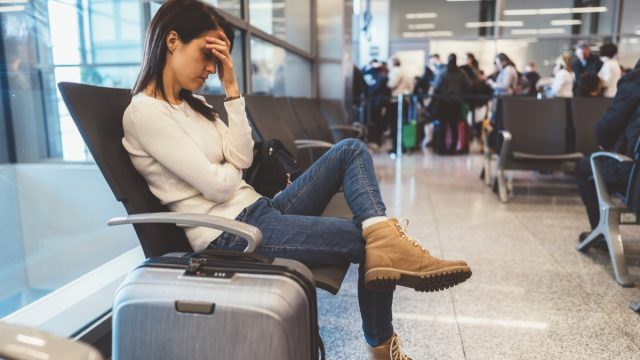
News of a potential government shutdown has been dominating headlines and social media posts recently. You may not be too concerned about the possibility if you're not a federal employee, but there could still be major impacts for you as well. Just looking at past shutdowns makes it clear that there may be potential repercussions for travelers. Read on to discover exactly how a government shutdown could wreak havoc on flights and national parks.
RELATED: TSA Issues New Alert on What You Can't Bring Through Security.
The U.S. is headed toward a government shutdown.
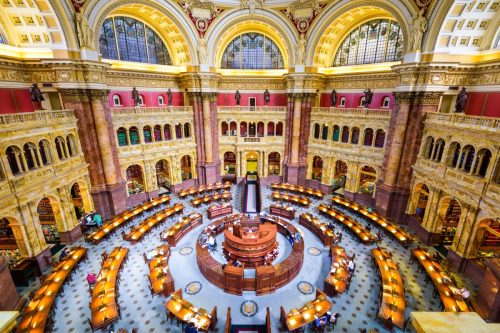
The White House is preparing for a shutdown as members of Congress are at an impasse regarding the next federal funding bill. Current spending laws expire on Sept. 30 at the end of the government's fiscal year, The Washington Post reported. Failure to reach an agreement on next year's budget before this deadline will result in a government shutdown.
Officials now believe that this is likely to happen, as House Republicans have left town without a viable negotiation plan and aren't expected back until Sept. 26—leaving just five days to resolve the current standoff, the Associated Press reported. As a result, President Joe Biden's Office of Management and Budget (OMB) is already preparing to advise federal agencies to review and update their shutdown plans, according to the news outlet.
RELATED: Major Banks Won't Stop Shutting Down Branches—Here's Why.
Millions of federal employees will stop receiving paychecks as a result.

If a shutdown does happen, the government can't spend money. That means millions of federal employees will stop receiving paychecks, The Washington Post explained. Hundreds of thousands of workers will be sent home unpaid, while others who are deemed essential will be forced to continue working without pay.
The last government shutdown happened during former President Donald Trump's administration in late 2018 to early 2019, as Trump and House Democrats fought over his proposed border wall. It lasted for 34 days, which also made it the longest shutdown in U.S. history, per The Washington Post.
This could wreak havoc on future flights.
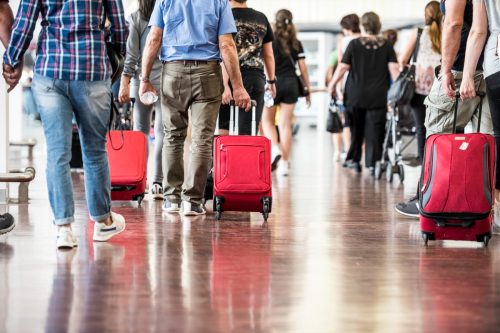
White House press secretary Karine Jean-Pierre has already said the looming shutdown could result in "significant" delays for travelers, CBS News reported. In fact, that record-breaking shutdown only came to an end after travel delays started hitting major airports on the East Coast.
As USA Today explained, a shutdown won't affect your travel plans initially, because air traffic controllers, safety inspectors, security agents, and customs officials have been exempt under previous shutdown plans and are likely to continue working unpaid as essential workers.
But in 2019, Federal Aviation Administration (FAA) controllers and Transportation Security Administration (TSA) agents eventually started not showing up to work after about two weeks without pay. This caused air travel disarray, as long lines started building up at security checkpoints and flights were unable to take off. Shortly after that, Congress finally agreed to funding legislation, according to USA Today.
RELATED: American Airlines Flight Attendants Vote to Strike—What That Means for Your Flights.
It may also impact national parks.
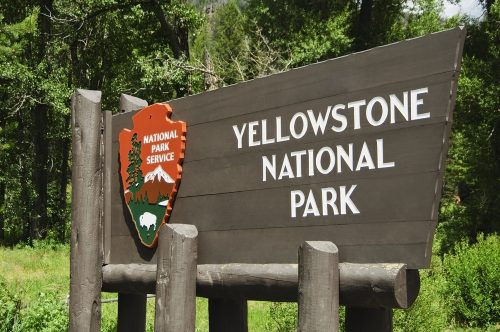
If you've got plans to visit a national park, it's not just air travel you need to worry about. Some national parks closed entirely during the 2019 shutdown, USA Today reported. The parks that stayed open were left without staff to maintain them, and many fell into bad shape with trash piling up and toilets overflowing.
"It's not good for the government staff, public lands and waters, or Americans who want to visit these places in September when the weather gets a little better," Jessica Turner, president of the Outdoor Recreation Roundtable, recently told Bloomberg Government.
RELATED: For more up-to-date information, sign up for our daily newsletter.


